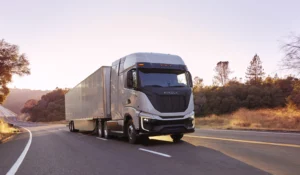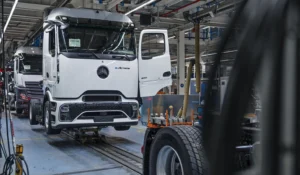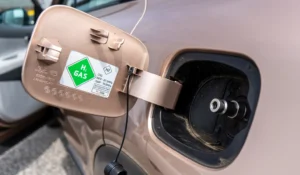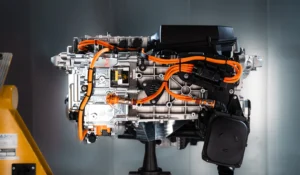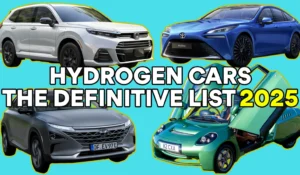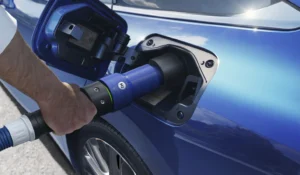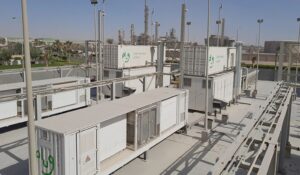Nikola goes bankrupt, initiates sale process to restructure zero-emissions truck operations
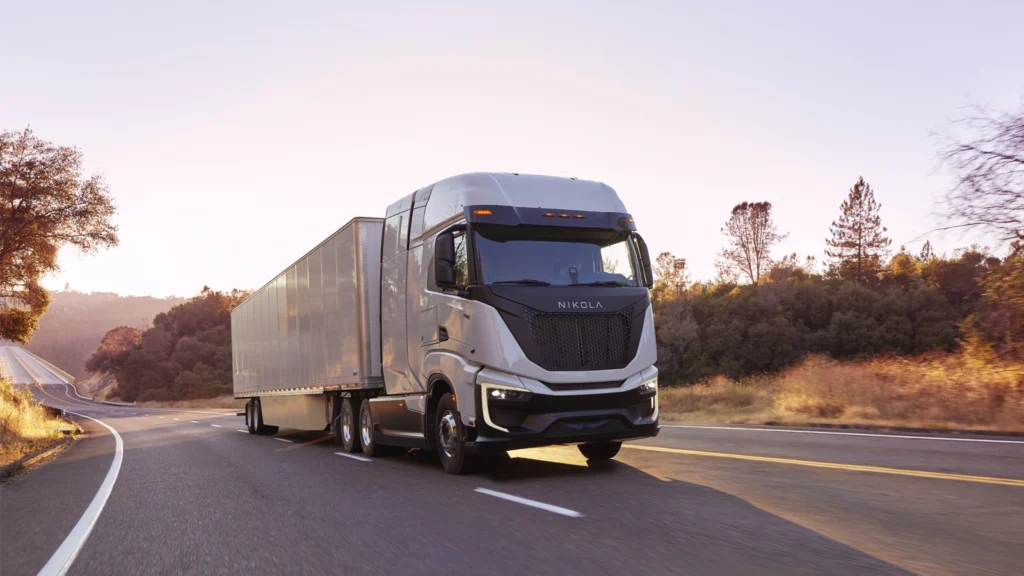
Nikola Corporation, once hailed as a pioneer in zero-emissions commercial trucking, has filed for Chapter 11 bankruptcy protection in the United States Bankruptcy Court for the District of Delaware.
The announcement, which was made today (Weds 19th Feb), comes after years of financial and reputational struggles for the startup, despite notable strides in hydrogen fuel cell and battery-electric truck production and sales.
A troubled road to bankruptcy
Nikola’s journey has been turbulent from its early days, when it went public via a special purpose acquisition company (SPAC) at the height of market enthusiasm for electrified vehicle startups.
Controversies surrounding its Founder’s claims, coupled with the immense capital demands of manufacturing Class 8 trucks at scale, weighed heavily on the company’s reputation and balance sheet.
While the overall demand for zero-emissions trucks remains strong, Nikola’s leadership acknowledges that the company could not generate sufficient liquidity to sustain its operations.
Despite multiple rounds of fundraising and cost-saving efforts, the cash burn proved insurmountable.
Hydrogen fuel cell momentum
A key bright spot in Nikola’s story has been its hydrogen fuel cell electric vehicle (FCEV) platform.
The company took an “agnostic” approach to clean propulsion, offering both battery-electric (BEV) and hydrogen fuel cell electric (FCEV) variants of its trucks – built on chassis underpinnings borrowed from Italian truckmaker, Iveco.
In fact, Nikola reported stronger sales for its hydrogen-powered rigs compared to its battery-electric models, signaling robust market interest in hydrogen solutions for heavy-duty trucking.
Major companies, including Walmart Canada, DHL, and Diageo, placed orders for Nikola’s trucks, underscoring confidence in the firm’s technology.
Nikola’s HYLA-branded hydrogen fuelling infrastructure was another step toward establishing a dedicated refuelling network connecting key freight corridors.
Chapter 11 filing and next steps
According to a statement from Nikola, the company and certain subsidiaries have “filed voluntary petitions under Chapter 11 of the Bankruptcy Code” and will pursue an auction and sale process under Section 363.
The goal is to identify “value-maximising” transactions, with potential bids from strategic and financial buyers.
Nikola enters the bankruptcy process with approximately $47 million in cash on hand to fund operations through the end of March 2025, including continuing certain service, support, and fuelling responsibilities for trucks already deployed in the field.
However, the company notes that sustaining these services beyond March will require at least one partner or buyer to step in.
The firm’s President and CEO, Steve Girsky, highlighted Nikola’s achievements in rolling out the first commercially available Class 8 hydrogen fuel cell trucks in North America and developing HYLA’s hydrogen “refuelling highway” in California.
“Unfortunately, our very best efforts have not been enough to overcome these significant challenges”, Girsky said in a press release, adding that Chapter 11 is the best path forward to preserve value for stakeholders.
If there was a nationwide refuelling network, would you buy a hydrogen car?
Implications for hydrogen trucking
Nikola’s bankruptcy follows a pattern of high-profile collapses in the wider zero-emissions vehicle space, where significant upfront capital requirements and fast-evolving market conditions have forced several early entrants to restructure or shutter.
Despite these headwinds, the strong customer interest in Nikola’s hydrogen trucks signals that hydrogen still holds promise for certain segments of the heavy-duty industry – particularly those needing extended range, reduced cab weight and maximised productivity, as a result of fast refuelling.
For the broader hydrogen sector, Nikola’s downfall underscores the importance of strong partnerships, robust supply chains, and long-term financing strategies.
Observers note that while this bankruptcy is a setback, it may also lead to a reconfiguration of the company’s assets – potentially allowing its hydrogen trucking and refuelling operations to continue under new ownership.
Looking ahead
With the Chapter 11 filing now public, Nikola’s next steps involve marketing and selling its assets, either in whole or in parts.
Interested buyers will gain access to due diligence materials, and a structured auction process is anticipated to move quickly, given Nikola’s liquidity constraints.
Whether Nikola’s hydrogen trucking platform will find a second life in the hands of new owners remains to be seen.
This development serves as a reminder of both the promise and the peril inherent in scaling novel zero-emissions solutions in a capital-intensive industry like auto manufacturing.

